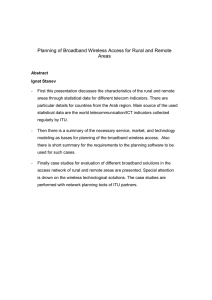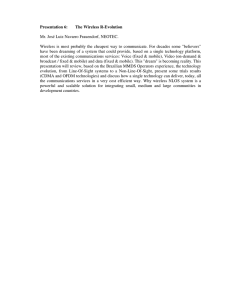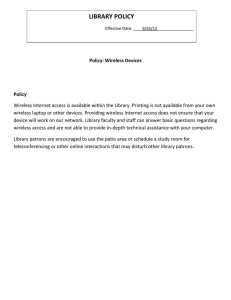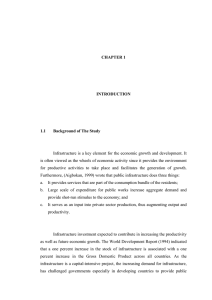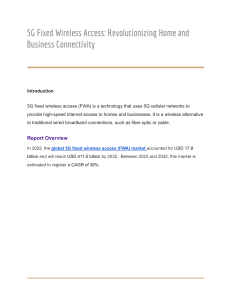Planning of Broadband Wireless Access for Rural and Remote Areas... Private Partnership Scheme: Case in Indonesia
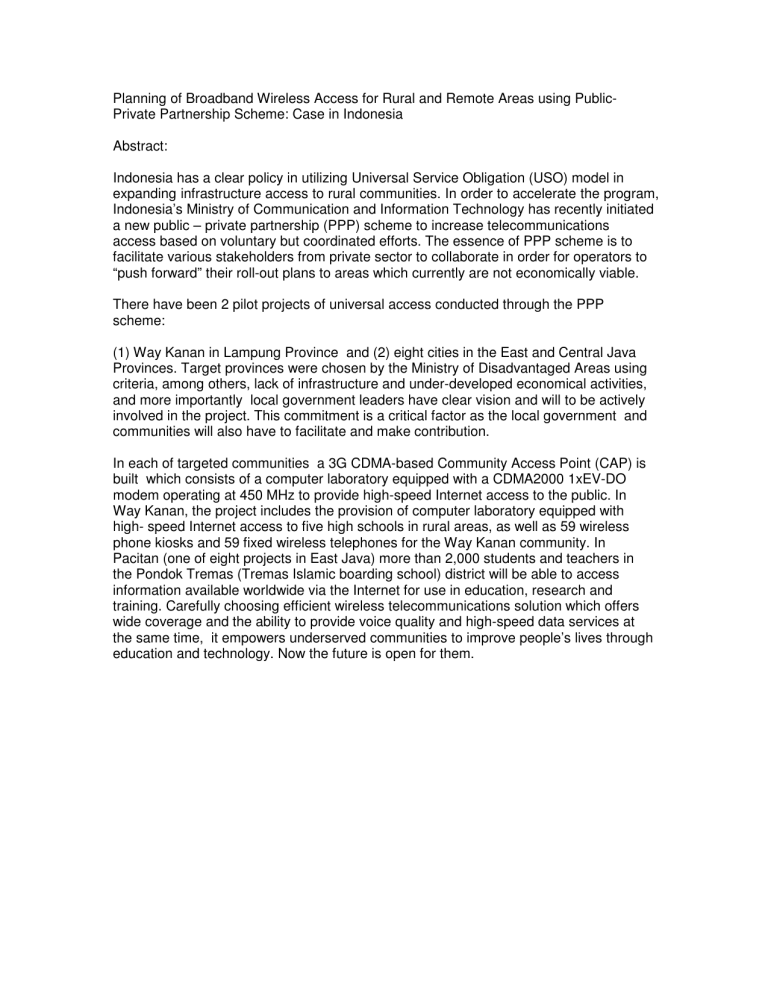
Planning of Broadband Wireless Access for Rural and Remote Areas using Public-
Private Partnership Scheme: Case in Indonesia
Abstract:
Indonesia has a clear policy in utilizing Universal Service Obligation (USO) model in expanding infrastructure access to rural communities. In order to accelerate the program,
Indonesia’s Ministry of Communication and Information Technology has recently initiated a new public – private partnership (PPP) scheme to increase telecommunications access based on voluntary but coordinated efforts. The essence of PPP scheme is to facilitate various stakeholders from private sector to collaborate in order for operators to
“push forward” their roll-out plans to areas which currently are not economically viable.
There have been 2 pilot projects of universal access conducted through the PPP scheme:
(1) Way Kanan in Lampung Province and (2) eight cities in the East and Central Java
Provinces. Target provinces were chosen by the Ministry of Disadvantaged Areas using criteria, among others, lack of infrastructure and under-developed economical activities, and more importantly local government leaders have clear vision and will to be actively involved in the project. This commitment is a critical factor as the local government and communities will also have to facilitate and make contribution.
In each of targeted communities a 3G CDMA-based Community Access Point (CAP) is built which consists of a computer laboratory equipped with a CDMA2000 1xEV-DO modem operating at 450 MHz to provide high-speed Internet access to the public. In
Way Kanan, the project includes the provision of computer laboratory equipped with high- speed Internet access to five high schools in rural areas, as well as 59 wireless phone kiosks and 59 fixed wireless telephones for the Way Kanan community. In
Pacitan (one of eight projects in East Java) more than 2,000 students and teachers in the Pondok Tremas (Tremas Islamic boarding school) district will be able to access information available worldwide via the Internet for use in education, research and training. Carefully choosing efficient wireless telecommunications solution which offers wide coverage and the ability to provide voice quality and high-speed data services at the same time, it empowers underserved communities to improve people’s lives through education and technology. Now the future is open for them.
